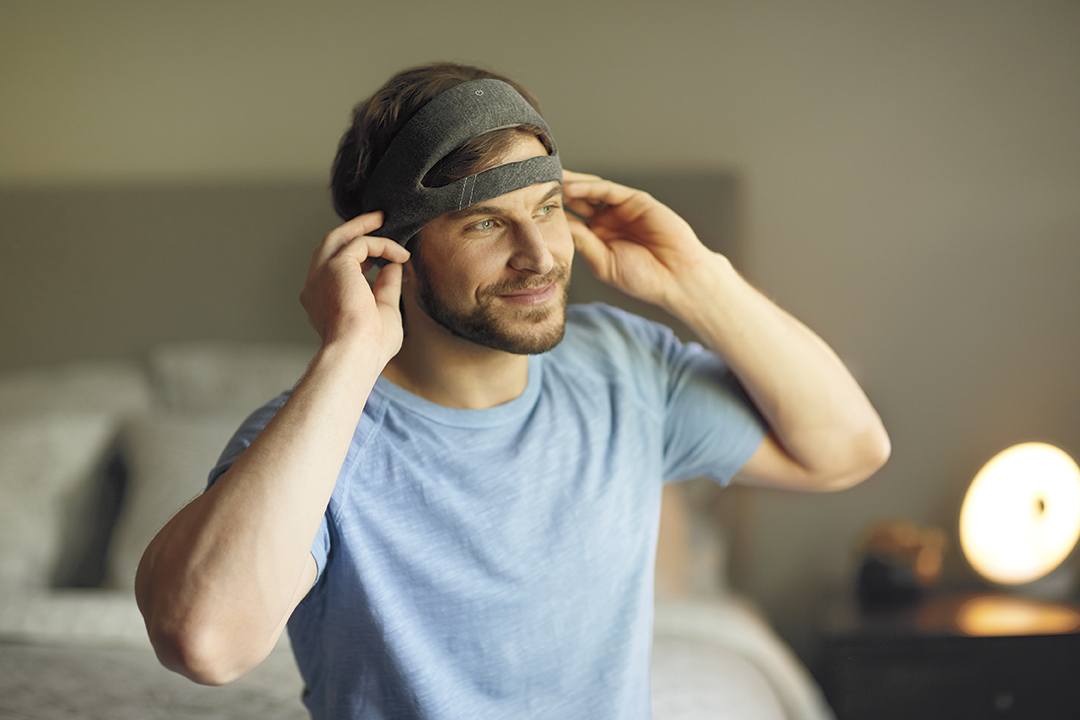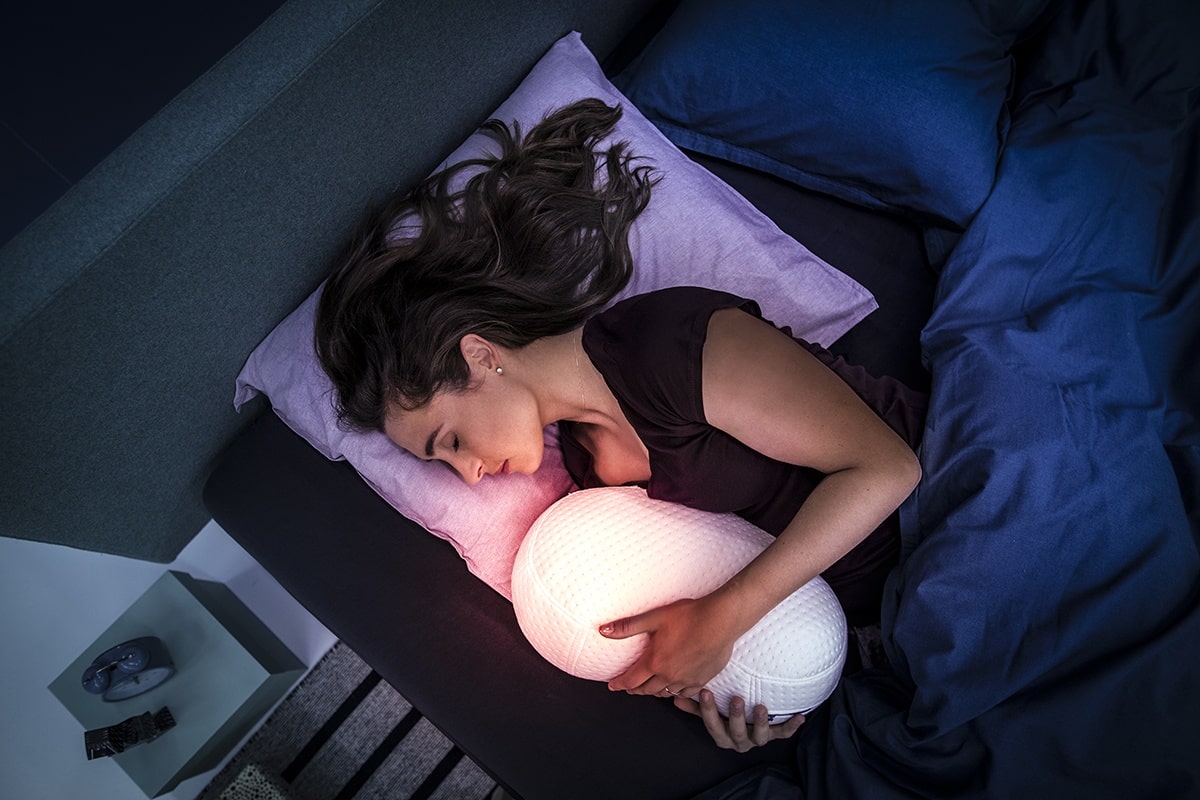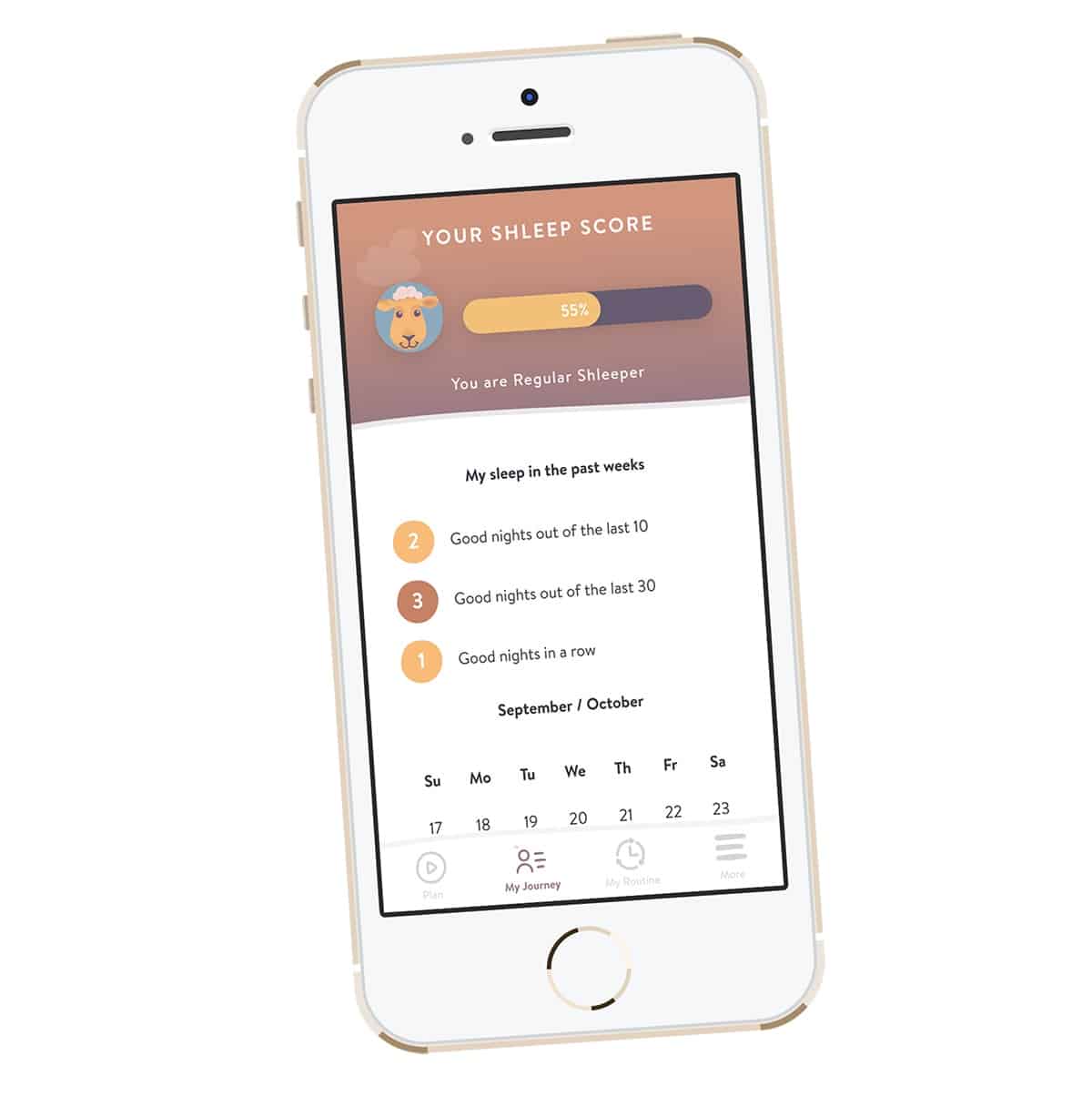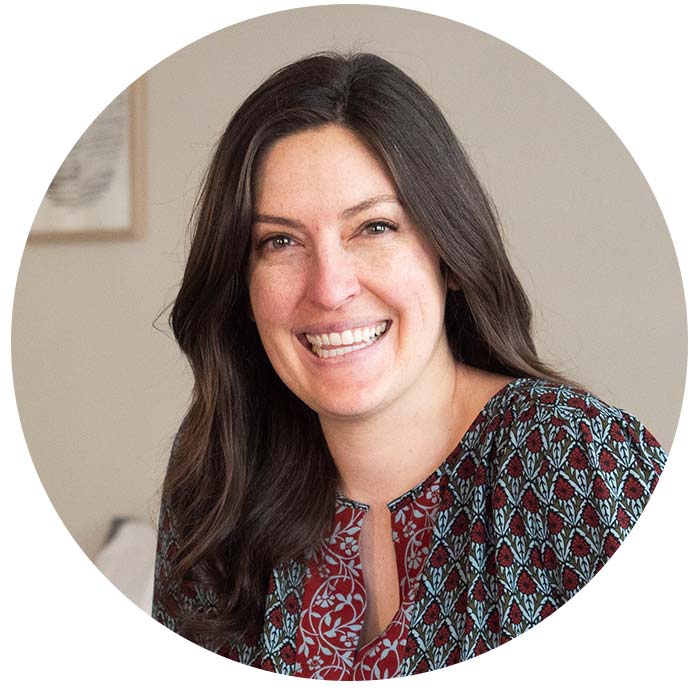The newest and most innovative sleep technology was on display at the 2018 Consumer Electronics Show in Vegas this January.
The National Sleep Foundation sponsored a special section on sleep technology at the year’s biggest technology event and more than a dozen sleep vendors provided exhibits.
From sleep trackers to sleep robots, here’s a collection of some of the most talked about products to help you sleep from CES 2018:
SleepSmart headband from Phillips.
This is a wearable sleep technology that Phillips says is clinically proven “to help improve the quality of your sleep for consumers who do not get enough sleep due to lifestyle– so you don’t need more sleep to wake up with more energy.”
The device is designed for people between the ages of 18 and 40, says Phillips. Here is how it works:
Sound tones enhance the “slow waves” your brain produces during deep sleep. Two small sensors detect when you’re in slow wave sleep, monitoring your sleep levels and responding with tones when you’re ready for a boost. Our proprietary algorithm customizes the timing and volume of tones delivered to boost your slow waves, so you can make the most of the deep sleep time you have.
The headband is made up of a soft fabric and includes integrated speakers that you can move depending on what’s comfortable for you. They will be available in Spring 2018 says Phillips.
Somnox’s sleep robot
Called the world’s first sleep robot, this small and soft grey and a white bean-like product is designed help you fall asleep effortlessly.
The idea is to spoon the robot and utilize its “breathing, lullabies and affection” functions to help lull you into a deep slumber.
“If you hold the Somnox sleep robot you will feel it breathe,” says Somnox on their website. “Many studies have shown that feeling a breathing rhythm can reduce stress and induce sleep.”The sleep robot can be found on Indiegogo.
The Shleep app
Shleep is an app for your smartphone that acts as a personal sleep coach. The app takes your information and preferences based on a scan. After that, it creates a personalized sleep plan for you, including exercises.
“The program consists of videos and targeted exercises designed to improve sleep behaviors and thereby reduce sleep deficits,” says Mary Burritt, associate editor of Furniture Today.
Shleep was developed by a Dutch team, led by Dr. Els van Der Helm of Amsterdam. It is currently available for Android and iOS devices.
Image from shleepbetter.com
Nightingale’s Smart Home Sleep System
This Kickstarter project is “the first smart home sleep system designed to mask common indoor and outdoor noises to help you sleep better every night,” according to the company.
“While this looks like a simple wall plug, it is actually pretty interesting. I have not seen any data on the device, but I like the idea,” says Dr. Michael Breus, a clinical psychologist, and noted sleep expert. “You get two units and place them at different parts of the room. These units will ‘wrap your bedroom in a blanket of sound’ tailored to the specific room acoustics. It can all be controlled with an app, and I think you can even put your own music in it if you want.”
Nightingale can be used with Amazon and Alexa for those who already have a smart home.
RELATED: Best Mattresses for Heavier People
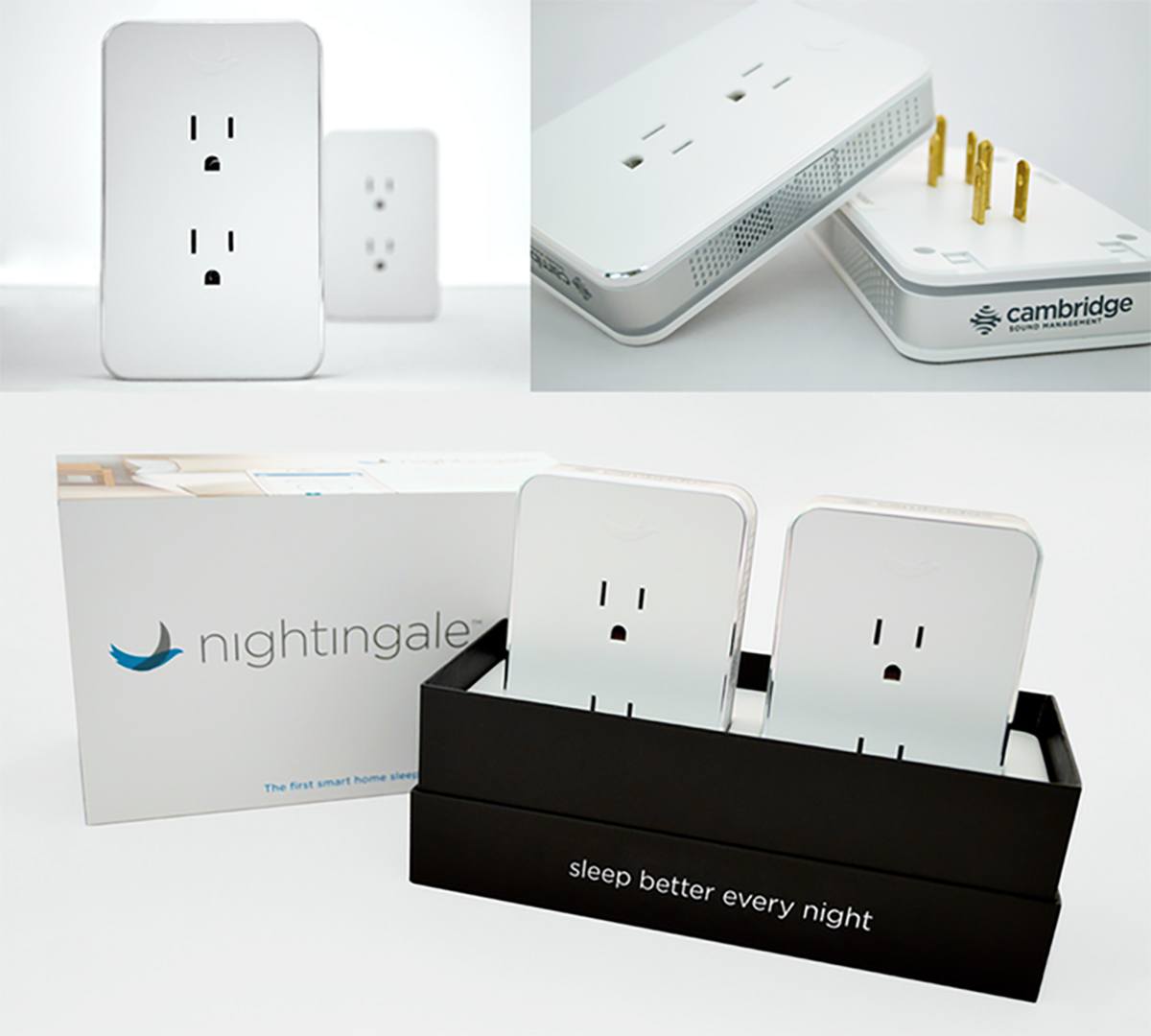 Image from Nightingale’s Kickstarter campaign
Image from Nightingale’s Kickstarter campaign
RELATED: How to Create a Great Sleep Environment
Featured image courtesy of Somnox

